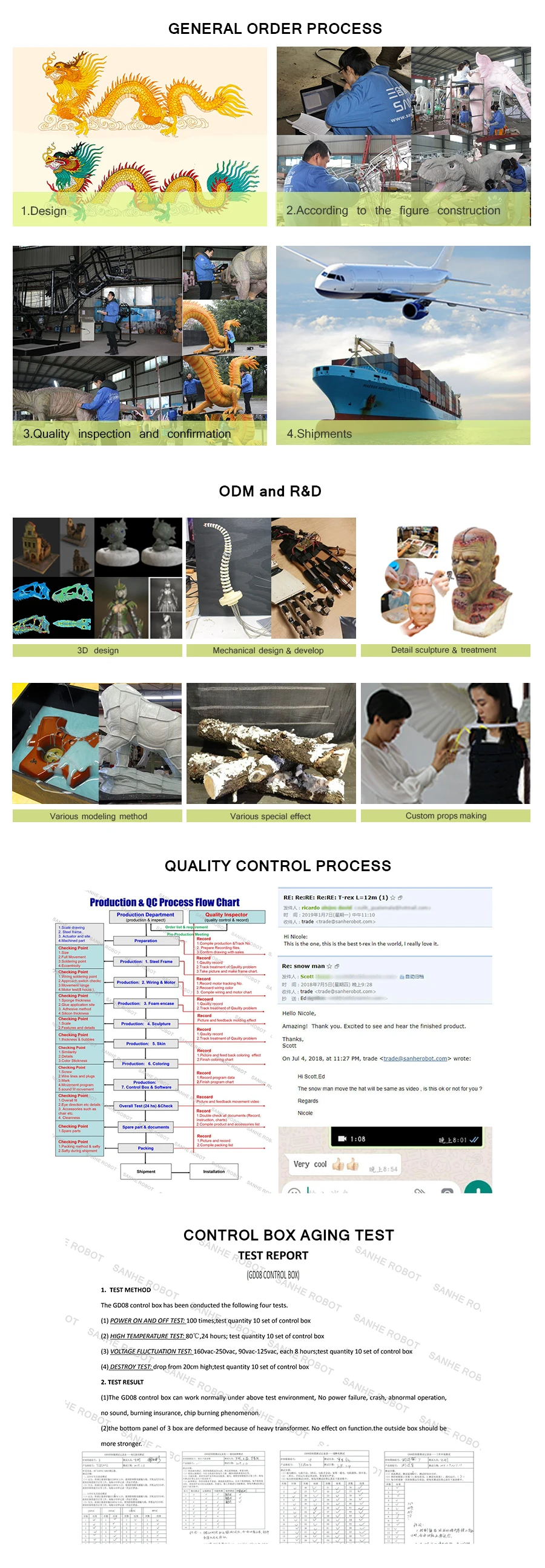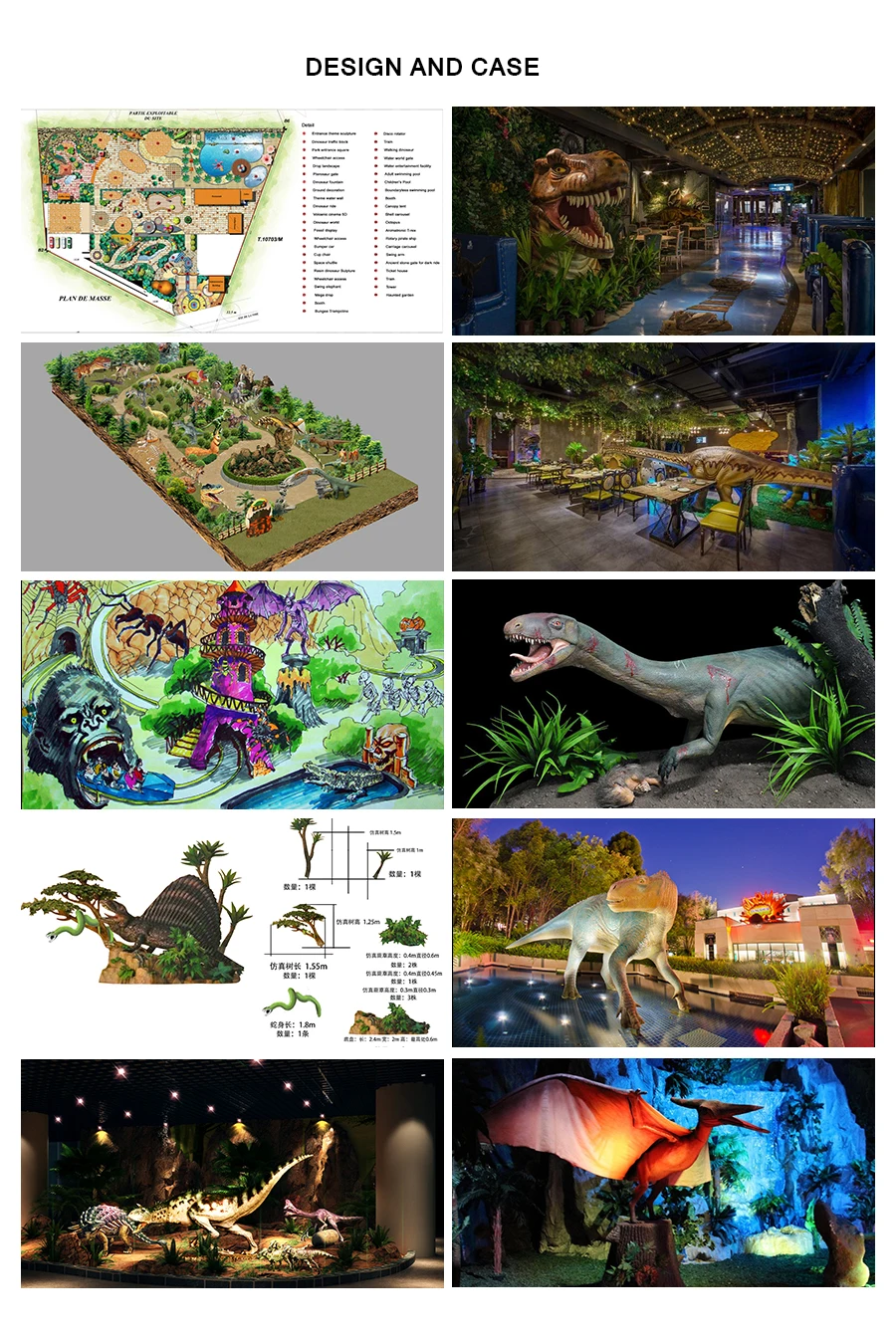Factory outlet handmade animatronic animal Phioma for exhibition


MORE INFORMATION
| Input | AC 110/220V ,50-60HZ |
| Plug | Euro plug / British Standard / SAA / C-UL / or depends on request |
| Control mode | Automatic / Infrared / remote / coin / Button / Voice / Touch / Temperature / shooting etc. |
| Waterproofing grade | IP66 |
| Working condition | Sunshine, rain, seaside, 0~50℃(32℉~82℉) |
| Optional function | Sound can be increased to 128 kinds Smoke,/ water. / bleed / smell / change color / change lights / LED screen etc interactive(Location tracking) / conversine(currently only Chinese) |
AFTER-SALE SERVICE
| Service | Need be cut for shipping,fwill provide a detailed installation manual. |
| Warranty | We provide 2 years warranty for all of our antrimatronic models, the warranty pieriod starts from freight arrives at destination port. Our warranty covers motor, reducer, control box, etc. |






 animatronic animal life size elephant lifelike animal life size animal statues animal statues for sale life size animatronic animal statues outdoor playground life size animal life size animal replica animal playground equipment lifelike animal model theme park robotic animal life size artificial animal life size animal model lifesize animal robot animals amusement park exhibition
Mechanical animal simulation animal artificial animal animatronic animal for sale
Phiomia is an extinct genus of basal proboscid that lived in what is now Northern Africa during the Late Eocene to Early Oligocene some 37–30 million years ago. "Phiomia serridens" means "saw-toothed animal of Faiyum
Phiomia was around 2.5 metres (8.2 ft) high, and vaguely resembled a modern elephant, although, based on the shape of its nasal bones, it had only a very short trunk. It had short tusks on the upper jaw and also short shovel-like tusks on the lower jaw that were most likely used for gathering food. These were similar to those of the Miocene Platybelodon, Archaeobelodon, and Amebelodon, but considerably smaller. The tusks in the upper jaw may have been used in defence, or scraping bark off trees.
Animals (also called Metazoa) are multicellular, eukaryotic organisms in the biological kingdom Animalia. With few exceptions, animals consume organic material, breathe oxygen, are able to move, can reproduce sexually, and grow from a hollow sphere of cells, the blastula, during embryonic development. Over 1.5 million living animal species have been described—of which around 1 million are insects—but it has been estimated there are over 7 million animal species in total. Animals range in length from 8.5 micrometres (0.00033 in) to 33.6 metres (110 ft). They have complex interactions with each other and their environments, forming intricate food webs. The scientific study of animals is known as zoology.
animatronic animal life size elephant lifelike animal life size animal statues animal statues for sale life size animatronic animal statues outdoor playground life size animal life size animal replica animal playground equipment lifelike animal model theme park robotic animal life size artificial animal life size animal model lifesize animal robot animals amusement park exhibition
Mechanical animal simulation animal artificial animal animatronic animal for sale
Phiomia is an extinct genus of basal proboscid that lived in what is now Northern Africa during the Late Eocene to Early Oligocene some 37–30 million years ago. "Phiomia serridens" means "saw-toothed animal of Faiyum
Phiomia was around 2.5 metres (8.2 ft) high, and vaguely resembled a modern elephant, although, based on the shape of its nasal bones, it had only a very short trunk. It had short tusks on the upper jaw and also short shovel-like tusks on the lower jaw that were most likely used for gathering food. These were similar to those of the Miocene Platybelodon, Archaeobelodon, and Amebelodon, but considerably smaller. The tusks in the upper jaw may have been used in defence, or scraping bark off trees.
Animals (also called Metazoa) are multicellular, eukaryotic organisms in the biological kingdom Animalia. With few exceptions, animals consume organic material, breathe oxygen, are able to move, can reproduce sexually, and grow from a hollow sphere of cells, the blastula, during embryonic development. Over 1.5 million living animal species have been described—of which around 1 million are insects—but it has been estimated there are over 7 million animal species in total. Animals range in length from 8.5 micrometres (0.00033 in) to 33.6 metres (110 ft). They have complex interactions with each other and their environments, forming intricate food webs. The scientific study of animals is known as zoology.

+86-813-2104677

info@sanherobot.com

+86-13990010824

No.13 Huixin Road, Yantan Town, Yantan District, Zigong City, Sichuan Province, China